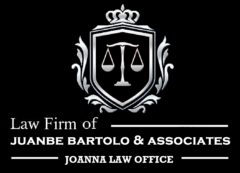Guide to Extrajudicial Settlement of Property in the Philippines: Process, Taxes, and Requirements
When a person passes away without a will in the Philippines, their estate (assets and properties) can be settled through either judicial or extrajudicial means. Extrajudicial settlement is often the more straightforward option, as it involves heirs agreeing on how to distribute the property without going to court. This guide will walk you through the process, requirements, and taxes involved, with insights into the experiences of others who have undergone this procedure. Settling a property is a complicated process but we simplified the procedure so that you can understand the basic process of settling a person’s estate.
What Is Extrajudicial Settlement?
An extrajudicial settlement refers to the division of a deceased person’s estate by the heirs without needing a court proceeding. This option is only available if:
- The deceased did not leave a will (intestate).
- There are no debts left behind, or all debts have been settled.
- The heirs agree on how to divide the estate.
How to Extrajudicially Settle an Estate
Here is a simplified step-by-step guide on how to settle an estate extrajudicially in the Philippines:
1. Execute a Deed of Extrajudicial Settlement
The heirs must draft and sign a Deed of Extrajudicial Settlement of Estate. This document outlines the names of the heirs, the relationship with the deceased, and the details of the estate being settled (such as real properties, bank accounts, and other assets). If there are multiple heirs, they must come to an agreement on how to distribute the estate.
2. Notarization of the Document
Once the Deed of Extrajudicial Settlement has been signed by all heirs, it must be notarized by a notary public to make it a legally binding document.
3. Secure the BIR Tax Clearance
Before distributing any estate, the Bureau of Internal Revenue (BIR) requires the filing of an Estate Tax Return. The heirs must pay the estate tax, and after this, they will receive a Certificate Authorizing Registration (CAR) from the BIR, which allows the transfer of the properties to the heirs.
4. Publication Requirement
The Deed of Extrajudicial Settlement must be published in a newspaper of general circulation for three consecutive weeks. This is a legal requirement to notify potential claimants or creditors who may wish to dispute the settlement. The publication requirement usually occurs after the payment of taxes with the BIR. It is required before the Register of Deeds records the extrajudicial settlement.
5. Transfer of Property Titles
Once the estate tax has been settled, the heirs can begin the process of transferring property titles. For real estate, the heirs must:
- Submit the CAR to the Register of Deeds.
- Secure new titles for the properties under the names of the heirs.
Taxes Involved in Extrajudicial Settlement
1. Estate Tax
The main tax involved in the extrajudicial settlement of an estate is the estate tax, which must be paid to the BIR. The current estate tax rate in the Philippines is 6% of the net estate. Note that the TRAIN Law does not apply to deaths that occurred before the law took effect, subject to the rules on Estate tax Amnesty. The fee for the Certificate of Registration is not included.
2. Documentary Stamp Tax (DST)
A documentary stamp tax is also levied on the transfer of properties during an extrajudicial settlement. This is usually 1.5% of the value of the property.
3. Transfer Tax
The transfer tax (typically between 0.5% and 0.75% of the property value) must be paid to the local government unit (LGU) where the property is located before the new title can be processed.
4. Publication Fee
The cost of publishing the extrajudicial settlement in a newspaper varies depending on the publication.
Requirements for Extrajudicial Settlement
The following documents are typically required when extrajudicially settling an estate:
- Death Certificate of the deceased.
- Tax Identification Numbers (TINs) of all heirs.
- Certificate of No Property for heirs inheriting real estate.
- Proof of relationship to the deceased (such as birth certificates, marriage certificates).
- Deed of Extrajudicial Settlement signed by all heirs.
- Affidavit of Publication from the newspaper where the settlement was published.
- BIR Form 1801 (Estate Tax Return).
- CAR (Certificate Authorizing Registration) from the BIR after estate tax payment.
Stories of People Settling Estates Extrajudicially
- The Importance of Family Consensus: In one case, a family from Quezon City successfully settled the estate of their father, who passed away intestate, by mutually agreeing on how to divide the assets. The heirs collaborated on drafting the extrajudicial settlement document. Although there was an initial disagreement over one of the family properties, they eventually reached a compromise without resorting to a court battle, highlighting the value of open communication among heirs.
- Overcoming Administrative Delays: Another family faced delays when the local Register of Deeds office took months to process the transfer of property titles after the payment of estate taxes. They learned the importance of following up regularly with government offices to expedite the processing of documents.
Conclusion
Extrajudicial settlement is an efficient way for heirs to divide the estate of a deceased family member without going to court. While the process involves some legal formalities such as notarization, publication, and tax payments, it is generally faster and more cost-effective than judicial settlement. To ensure a smooth process, all heirs should collaborate and be aware of the necessary legal steps and documents required.
For those undertaking this process, consulting a lawyer or visiting your local civil registry office can provide additional guidance and help avoid delays. Additionally, staying proactive about requirements and fees, particularly taxes, can prevent roadblocks.


